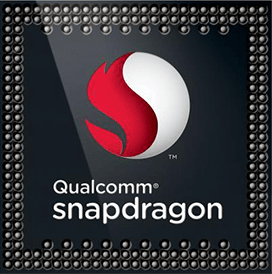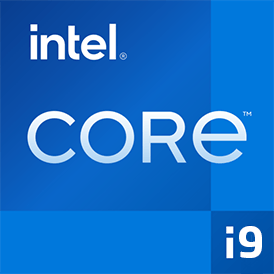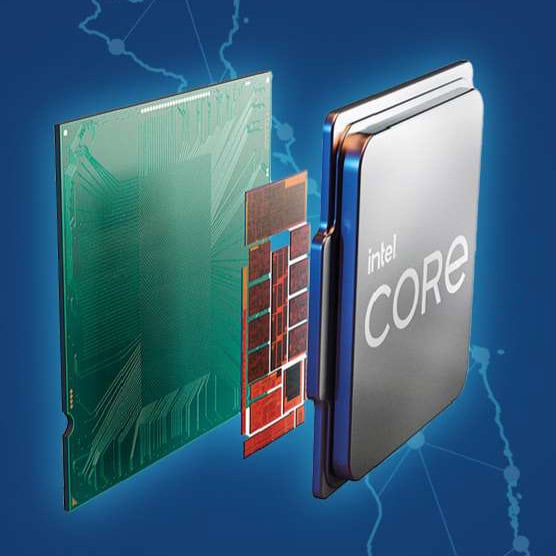Qualcomm Snapdragon 7s Gen 2 vs Intel Core i9-12900KF
Last updated:
CPU comparison with benchmarks

|

|
|
| Qualcomm Snapdragon 7s Gen 2 | Intel Core i9-12900KF | |
CPU comparisonQualcomm Snapdragon 7s Gen 2 or Intel Core i9-12900KF - which processor is faster? In this comparison we look at the differences and analyze which of these two CPUs is better. We compare the technical data and benchmark results.
The Qualcomm Snapdragon 7s Gen 2 has 8 cores with 8 threads and clocks with a maximum frequency of 2.40 GHz. Up to GB of memory is supported in 0 memory channels. The Qualcomm Snapdragon 7s Gen 2 was released in Q3/2023. The Intel Core i9-12900KF has 16 cores with 24 threads and clocks with a maximum frequency of 5.20 GHz. The CPU supports up to 128 GB of memory in 2 memory channels. The Intel Core i9-12900KF was released in Q4/2021. |
||
| Qualcomm Snapdragon (102) | Family | Intel Core i9 (78) |
| Qualcomm Snapdragon 7s Gen 2 (1) | CPU group | Intel Core i 12000 (34) |
| 2 | Generation | 12 |
| Kryo Gold / Kryo Silver | Architecture | Alder Lake S |
| Mobile | Segment | Desktop / Server |
| -- | Predecessor | Intel Core i9-11900KF |
| -- | Successor | Intel Core i9-13900KF |
|
|
||
CPU Cores and Base FrequencyThe Qualcomm Snapdragon 7s Gen 2 is a 8 core processor with a clock frequency of 2.40 GHz. The Intel Core i9-12900KF has 16 CPU cores with a clock frequency of 3.20 GHz (5.20 GHz). |
||
| Qualcomm Snapdragon 7s Gen 2 | Characteristic | Intel Core i9-12900KF |
| 8 | Cores | 16 |
| 8 | Threads | 24 |
| hybrid (big.LITTLE) | Core architecture | hybrid (big.LITTLE) |
| No | Hyperthreading | Yes |
| No | Overclocking ? | Yes |
| 2.40 GHz 4x Cortex-A78 |
A-Core | 3.20 GHz (5.20 GHz) 8x Golden Cove |
| 1.95 GHz 4x Cortex-A55 |
B-Core | 2.40 GHz (3.90 GHz) 8x Gracemont |
NPU AI performanceThe performance values of the processor's AI unit. The isolated NPU performance is specified here, the total AI performance (NPU+CPU+iGPU) can be higher. Processors with support for artificial intelligence (AI) and machine learning (ML) can process many calculations, especially audio, image and video processing, much faster than classic processors. |
||
| Qualcomm Snapdragon 7s Gen 2 | Characteristic | Intel Core i9-12900KF |
| Qualcomm AI engine | AI hardware | -- |
| Hexagon | AI specifications | -- |
Integrated graphics (iGPU)The integrated graphics unit of a processor is not only responsible for the pure image output on the system, but can also significantly increase the efficiency of the system with the support of modern video codecs. |
||
| Qualcomm Adreno 710 | GPU | no iGPU |
| 0.58 GHz | GPU frequency | -- |
| -- | GPU (Turbo) | -- |
| -- | GPU Generation | -- |
| 4 nm | Technology | |
| 0 | Max. displays | |
| -- | Compute units | -- |
| -- | Shader | -- |
| No | Hardware Raytracing | No |
| No | Frame Generation | No |
| -- | Max. GPU Memory | -- |
| 12.1 | DirectX Version | -- |
Hardware codec supportA photo or video codec that is accelerated in hardware can greatly accelerate the working speed of a processor and extend the battery life of notebooks or smartphones when playing videos. |
||
| Qualcomm Adreno 710 | GPU | no iGPU |
| Decode / Encode | Codec h265 / HEVC (8 bit) | No |
| Decode / Encode | Codec h265 / HEVC (10 bit) | No |
| Decode / Encode | Codec h264 | No |
| Decode / Encode | Codec VP9 | No |
| Decode / Encode | Codec VP8 | No |
| No | Codec AV1 | No |
| Decode | Codec AVC | No |
| Decode | Codec VC-1 | No |
| Decode / Encode | Codec JPEG | No |
Memory & PCIeThe Qualcomm Snapdragon 7s Gen 2 supports a maximum of GB of memory in 0 memory channels. The Intel Core i9-12900KF can connect up to 128 GB of memory in 2 memory channels. |
||
| Qualcomm Snapdragon 7s Gen 2 | Characteristic | Intel Core i9-12900KF |
| LPDDR4X-4266, LPDDR5-6400 | Memory | DDR5-4800, DDR4-3200 |
| Max. Memory | 128 GB | |
| 0 | Memory channels | 2 (Dual Channel) |
| 51.2 GB/s | Max. Bandwidth | 76.8 GB/s |
| No | ECC | No |
| -- | L2 Cache | 14.00 MB |
| -- | L3 Cache | 30.00 MB |
| -- | PCIe version | 5.0 |
| -- | PCIe lanes | 20 |
| -- | PCIe Bandwidth | 78.8 GB/s |
Thermal ManagementThe TDP (Thermal Design Power) of a processor specifies the required cooling solution. The Qualcomm Snapdragon 7s Gen 2 has a TDP of --, that of the Intel Core i9-12900KF is 125 W. |
||
| Qualcomm Snapdragon 7s Gen 2 | Characteristic | Intel Core i9-12900KF |
| -- | TDP (PL1 / PBP) | 125 W |
| -- | TDP (PL2) | 241 W |
| -- | TDP up | -- |
| -- | TDP down | -- |
| -- | Tjunction max. | 100 °C |
Technical detailsThe Qualcomm Snapdragon 7s Gen 2 has a 0.00 MB cache, while the Intel Core i9-12900KF cache has a total of 44.00 MB. |
||
| Qualcomm Snapdragon 7s Gen 2 | Characteristic | Intel Core i9-12900KF |
| 4 nm | Technology | 10 nm |
| Chiplet | Chip design | Monolithic |
| Armv9-A (64 bit) | Instruction set (ISA) | x86-64 (64 bit) |
| -- | ISA extensions | SSE4.1, SSE4.2, AVX2, AVX2+ |
| -- | Socket | LGA 1700 |
| None | Virtualization | VT-x, VT-x EPT, VT-d |
| No | AES-NI | Yes |
| Android, Windows 10/11 (ARM) | Operating systems | Windows 10, Windows 11, Linux |
| Q3/2023 | Release date | Q4/2021 |
| -- | Release price | 564 $ |
| show more data | show more data | |
Rate these processors
Cinebench 2024 (Single-Core)
The Cinebench 2024 benchmark is based on the Redshift rendering engine, which is also used in Maxon's 3D program Cinema 4D. The benchmark runs are each 10 minutes long to test whether the processor is limited by its heat generation.
|
|
Qualcomm Snapdragon 7s Gen 2
8C 8T @ 2.40 GHz |
||
|
|
Intel Core i9-12900KF
16C 24T @ 5.20 GHz |
||
Cinebench 2024 (Multi-Core)
The Multi-Core test of the Cinebench 2024 benchmark uses all cpu cores to render using the Redshift rendering engine, which is also used in Maxons Cinema 4D. The benchmark run is 10 minutes long to test whether the processor is limited by its heat generation.
|
|
Qualcomm Snapdragon 7s Gen 2
8C 8T @ 2.40 GHz |
||
|
|
Intel Core i9-12900KF
16C 24T @ 5.20 GHz |
||
Cinebench R23 (Single-Core)
Cinebench R23 is the successor of Cinebench R20 and is also based on the Cinema 4 Suite. Cinema 4 is a worldwide used software to create 3D forms. The single-core test only uses one CPU core, the amount of cores or hyperthreading ability doesn't count.
|
|
Qualcomm Snapdragon 7s Gen 2
8C 8T @ 2.40 GHz |
||
|
|
Intel Core i9-12900KF
16C 24T @ 5.20 GHz |
||
Cinebench R23 (Multi-Core)
Cinebench R23 is the successor of Cinebench R20 and is also based on the Cinema 4 Suite. Cinema 4 is a worldwide used software to create 3D forms. The multi-core test involves all CPU cores and taks a big advantage of hyperthreading.
|
|
Qualcomm Snapdragon 7s Gen 2
8C 8T @ 2.40 GHz |
||
|
|
Intel Core i9-12900KF
16C 24T @ 5.00 GHz |
||
Geekbench 5, 64bit (Single-Core)
Geekbench 5 is a cross plattform benchmark that heavily uses the systems memory. A fast memory will push the result a lot. The single-core test only uses one CPU core, the amount of cores or hyperthreading ability doesn't count.
|
|
Qualcomm Snapdragon 7s Gen 2
8C 8T @ 2.40 GHz |
||
|
|
Intel Core i9-12900KF
16C 24T @ 5.20 GHz |
||
Geekbench 5, 64bit (Multi-Core)
Geekbench 5 is a cross plattform benchmark that heavily uses the systems memory. A fast memory will push the result a lot. The multi-core test involves all CPU cores and taks a big advantage of hyperthreading.
|
|
Qualcomm Snapdragon 7s Gen 2
8C 8T @ 2.40 GHz |
||
|
|
Intel Core i9-12900KF
16C 24T @ 5.00 GHz |
||
Geekbench 6 (Single-Core)
Geekbench 6 is a benchmark for modern computers, notebooks and smartphones. What is new is an optimized utilization of newer CPU architectures, e.g. based on the big.LITTLE concept and combining CPU cores of different sizes. The single-core benchmark only evaluates the performance of the fastest CPU core, the number of CPU cores in a processor is irrelevant here.
|
|
Qualcomm Snapdragon 7s Gen 2
8C 8T @ 2.40 GHz |
||
|
|
Intel Core i9-12900KF
16C 24T @ 5.20 GHz |
||
Geekbench 6 (Multi-Core)
Geekbench 6 is a benchmark for modern computers, notebooks and smartphones. What is new is an optimized utilization of newer CPU architectures, e.g. based on the big.LITTLE concept and combining CPU cores of different sizes. The multi-core benchmark evaluates the performance of all of the processor's CPU cores. Virtual thread improvements such as AMD SMT or Intel's Hyper-Threading have a positive impact on the benchmark result.
|
|
Qualcomm Snapdragon 7s Gen 2
8C 8T @ 2.40 GHz |
||
|
|
Intel Core i9-12900KF
16C 24T @ 5.00 GHz |
||
Cinebench R20 (Single-Core)
Cinebench R20 is the successor of Cinebench R15 and is also based on the Cinema 4 Suite. Cinema 4 is a worldwide used software to create 3D forms. The single-core test only uses one CPU core, the amount of cores or hyperthreading ability doesn't count.
|
|
Qualcomm Snapdragon 7s Gen 2
8C 8T @ 2.40 GHz |
||
|
|
Intel Core i9-12900KF
16C 24T @ 5.20 GHz |
||
Cinebench R20 (Multi-Core)
Cinebench R20 is the successor of Cinebench R15 and is also based on the Cinema 4 Suite. Cinema 4 is a worldwide used software to create 3D forms. The multi-core test involves all CPU cores and taks a big advantage of hyperthreading.
|
|
Qualcomm Snapdragon 7s Gen 2
8C 8T @ 2.40 GHz |
||
|
|
Intel Core i9-12900KF
16C 24T @ 5.00 GHz |
||
Blender 3.1 Benchmark
In the Blender Benchmark 3.1, the scenes "monster", "junkshop" and "classroom" are rendered and the time required by the system is measured. In our benchmark we test the CPU and not the graphics card. Blender 3.1 was presented as a standalone version in March 2022.
|
|
Qualcomm Snapdragon 7s Gen 2
8C 8T @ 2.40 GHz |
||
|
|
Intel Core i9-12900KF
16C 24T @ 5.00 GHz |
||
Estimated results for PassMark CPU Mark
Some of the CPUs listed below have been benchmarked by CPU-monkey. However the majority of CPUs have not been tested and the results have been estimated by a CPU-monkey’s secret proprietary formula. As such they do not accurately reflect the actual Passmark CPU mark values and are not endorsed by PassMark Software Pty Ltd.
|
|
Qualcomm Snapdragon 7s Gen 2
8C 8T @ 2.40 GHz |
||
|
|
Intel Core i9-12900KF
16C 24T @ 5.00 GHz |
||
CPU-Z Benchmark 17 (Single-Core)
The CPU-Z benchmark measures a processor's performance by measuring the time it takes the system to complete all benchmark calculations. The faster the benchmark is completed, the higher the score.
|
|
Qualcomm Snapdragon 7s Gen 2
8C 8T @ 2.40 GHz |
||
|
|
Intel Core i9-12900KF
16C 24T @ 5.00 GHz |
||
CPU-Z Benchmark 17 (Multi-Core)
The CPU-Z benchmark measures a processor's performance by measuring the time it takes the system to complete all benchmark calculations. The faster the benchmark is completed, the higher the score.
|
|
Qualcomm Snapdragon 7s Gen 2
8C 8T @ 2.40 GHz |
||
|
|
Intel Core i9-12900KF
16C 24T @ 3.20 GHz |
||
Cinebench R15 (Single-Core)
Cinebench R15 is the successor of Cinebench 11.5 and is also based on the Cinema 4 Suite. Cinema 4 is a worldwide used software to create 3D forms. The single-core test only uses one CPU core, the amount of cores or hyperthreading ability doesn't count.
|
|
Qualcomm Snapdragon 7s Gen 2
8C 8T @ 2.40 GHz |
||
|
|
Intel Core i9-12900KF
16C 24T @ 5.20 GHz |
||
Cinebench R15 (Multi-Core)
Cinebench R15 is the successor of Cinebench 11.5 and is also based on the Cinema 4 Suite. Cinema 4 is a worldwide used software to create 3D forms. The multi-core test involves all CPU cores and taks a big advantage of hyperthreading.
|
|
Qualcomm Snapdragon 7s Gen 2
8C 8T @ 2.40 GHz |
||
|
|
Intel Core i9-12900KF
16C 24T @ 5.00 GHz |
||
CPU performance per watt (efficiency)
Efficiency of the processor under full load in the Cinebench R23 (multi-core) benchmark. The benchmark result is divided by the average energy required (CPU package power in watts). The higher the value, the more efficient the CPU is under full load.
|
|
Qualcomm Snapdragon 7s Gen 2
2.40 GHz |
||
|
|
Intel Core i9-12900KF
27,472 CB R23 MC @ 240 W |
||
Devices using this processor |
|
| Qualcomm Snapdragon 7s Gen 2 | Intel Core i9-12900KF |
| Unknown | Unknown |
News and articles for the Qualcomm Snapdragon 7s Gen 2 and the Intel Core i9-12900KF
Popular comparisons containing this CPUs
back to index


